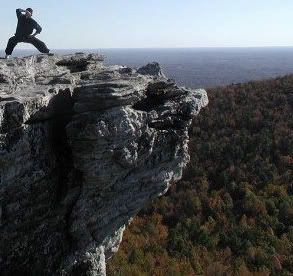JOURNEY OF TAI JI
 Many people in their professional life truly enjoy what they do (many do not, and that’s a shame). But it’s safe to say there are those that do enjoy their job. Even fewer, I believe, work without a single gripe. It’s huge bragging rights I know… but teaching (for me) gives a sense of joy like no other. Over the years, I’ve fielded lots of questions that I will repost here regarding the essence of Taijiquan and my method of teaching this lovely artform.
Many people in their professional life truly enjoy what they do (many do not, and that’s a shame). But it’s safe to say there are those that do enjoy their job. Even fewer, I believe, work without a single gripe. It’s huge bragging rights I know… but teaching (for me) gives a sense of joy like no other. Over the years, I’ve fielded lots of questions that I will repost here regarding the essence of Taijiquan and my method of teaching this lovely artform.
If you have a question that you’d like me to answer, please ask it in the comment section of this page and I’ll get to it as promptly as I can. Peace and love. -Coach
- What is Taiji ?
- Let me first say that there is a misconception that continues to mystify most, and that is centered around two words: taiji (tai chi) and taijiquan (tai chi chuan). They are related but different. Taiji is a subtle principle within Taoist philosophy regarding the essence and relationship of nature to anything and everything. Taijiquan is an artful expression of movement that attempts to unify our physical nature with that which is universal. It is an exercise that stimulates and rejuvenates the mind and body but it can not be forgotten that it is also a wonderful martial art and can be used for self-defense. [sidenote: any of us simply use 'Taiji' to shorten a word by four letters per the example below. Just so you don't try to catch me later. Haha! Thought you had me!]
-
- Is Chen Style Taiji for fighting & Yang Style for the elderly?
- No. Finding strength and learning to be soft are one and the same. Never set them apart just because they have a different look and appeal. Yang Style came from Chen Style, so in theory, technique and principle, they are also the same. Master Hong once wrote, “When we (Chen Stylists) look at Yang Chengfu’s (Yang Stylist’s) photos performing the ‘DaLu’, his sinking power into horse stance is perfect. No difference than Chen Style.”
-
- How many years does the system take to master?
- There are people that are quick learners, but I can tell you with complete honesty that the system of Taijiquan is very special because it can take a lifetime to master. Incidently it can take a lifetime to only become mediocre. People should study the theory, hold true to the principles and practice correctly (daily) to reach a high level. In addition, I also want to say that I do not believe in holding a “rank” over another person. I always had a problem with another person calling me “master.” This type of ego-stroke… superiority is never a good thing and isn’t what the martial arts should be about. Learning and discovery is cooperative and hence, is why I am referred to as ”teacher, coach or laoshi.” I had an interesting talk with Dr. Yang, Jwing-ming (teacher and prolific writer) and it makes me smile to remember what he told me… he said, “You may call me ‘Yang’ or ’Dr.Yang’ or ‘teacher’… but you call me ‘Master’ and I call you ‘Slave.’”
- Although people succeed and become a better martial arts (in terms of movement and energy) when they devote time and enthusiasm to their practice… I’ve never advocated in my classes or workshops that long, grueling hours and standing mediations of extreme lengths of time (and boredom) are requisites. In this way, I’m not a teacher of the traditional ways. Becoming what others term “a master” is not what I look for… I ask the questions of “Do you enjoy what you are doing?”… “Do you enjoy HOW you do it?”… “Can you truly FEEL what you’re doing?” … by answering yes to one or all of these questions are all that really matters.
-
- How do I find “naturalness?”
- It’s funny, and just one of the many contradictions of Taiji practice and this is “to be natural.” I remember speaking with my Taiji brother Ronnie Yee at Hunyuan World in 2003 and we had an interesting discussion on the subject. He made the point that we read that we should “flow like water”… “mental intention should be here (or there)”… “we should assume this posture for this length of time”… all of these words are in fact, unnatural for us (at least in the beginning). But what I (Michael Joyce) continue to tell my students is this: “The movements, breathwork, coordination… all of these are difficult for the beginner and is quite unnatural. This is simply because it is something foreign or new to us. Proper Taijiquan should be balanced (that is to say, neither 100% soft nor 100% hard/rigid)… done in a relaxed manner in hope to achieve what Bruce Lee termed ‘natural unnaturalness.’”
-

